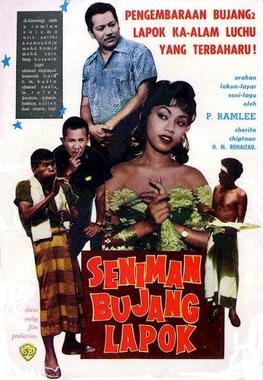The history of Brunei concerns the settlements and societies located on the north coast of the island of Borneo, which has been under the influence of Indianised kingdoms and empires for much of its history. Local scholars assume that the Islamisation of Brunei started in the fifteenth century with the formation of the Bruneian Empire, a thalassocracy that covered the northern part of Borneo and Sulu. At the end of the 17th century, Brunei subsequently entered a period of decline brought on by the Brunei Civil War, piracy, and European colonial expansion. Later, there was a brief war with Spain, in which Brunei evacuated its capital for a brief period until the Spanish withdrew. The empire lost much of its territory with the arrival of the Western powers, such as the Spanish in Luzon and Visayas and the British in Labuan, Sarawak, and North Borneo. The decline of the Bruneian Empire accelerated in the nineteenth century when Brunei gave much of its territory to the White Rajahs of Sarawak, resulting in its current small landmass and separation into two parts. Sultan Hashim Jalilul Alam Aqamaddin later appealed to the British to stop further annexation in 1888. In the same year, the British signed a "Treaty of Protection" and made Brunei a British protectorate until 1984 when it gained independence and prospered due to the discovery of oil.
Zaidpur is a town and a nagar panchayat in Barabanki district, Uttar Pradesh, India.

Dato' Sudirman bin Haji Arshad, DSAP, JMN, AMN, AMP, known mononymously as Sudirman, was a Malaysian singer and songwriter. His singing career kicked off after winning the Bintang RTM singing competition on 11 August 1976. His career defining moment came after he was awarded winner of the "1989 Asia's No. 1 Performer" title during the ‘'Asian Popular Music Awards'’ competition held at the Royal Albert Hall in London on 19 March 1989. Throughout his career, he was known as the "Singing Lawyer", the "People's Singer", the "Patriotic Singer" and the "Elvis Presley and Claude François of Malaysia" in his native country. Apart from being a renowned singer from Malaysia he was also a trained lawyer, a composer, writer, cartoonist, canned drinks entrepreneur and an actor.

There are many Malay ghost myths, remnants of old animist beliefs that have been shaped by Hindu-Buddhist cosmology and later Muslim influences, in the modern states of Brunei, Indonesia, Malaysia, and Singapore and among the Malay diaspora in neighbouring Southeast Asian countries. The general word for ghost is hantu, of which there exist a wide variety. Some ghost concepts such as the female vampires pontianak and penanggal are shared throughout the region. While traditional belief does not consider all ghosts as necessarily evil, Malaysian popular culture tends to categorise them all as types of evil djinn.

The National Film Department of Malaysia, abbreviated FNM, sometimes Jabatan Filem Negara (JFN) or informally the Malaysian Film Unit; was a Malaysian film production house and the government department under the Malaysian Ministry of Communications and Multimedia. It is responsible for the filming and documentation of national events as well as producing factual and unscripted narrative contents. The film department, which headquartered at Petaling Jaya, Selangor, uses a jumping Malayan tiger as its logo.

Ibu Mertuaku is a 1962 Singaporean Malay-language black-and-white melodrama film directed by and starring silver-screen legend P. Ramlee. The film's story revolves around the tragic love affair between Kassim Selamat, a poor musician, and Sabariah, the only daughter of a wealthy woman.

Tiga Abdul is a 1964 Malaysian Malay-language black-and-white comedy film directed by and starring Malaysian silver-screen icon P. Ramlee. It tells the story of three brothers who are caught in a web of trickery set by the cunning Sadiq Segaraga, who uses his three daughters to try and fleece the three brothers of all their wealth. The movie is a tribute to traditional folktales with a moral set into the story and is set in a fictional Middle Eastern country named Isketambola, loosely based on Istanbul, Turkey. It was the last film to be directed by P. Ramlee in Singapore before he moved to his new workplace in Merdeka Studios, Kuala Lumpur in 1965.

Ali Baba Bujang Lapok is a 1961 Singaporean Malay-language black-and-white comedy film directed by, written by and starring Malaysian silver-screen legend P. Ramlee and produced in Singapore by Malay Film Productions Ltd. Based loosely on the story of Ali Baba from 1001 Arabian Nights, the film is occasionally self-referential and contains elements of anarchic comedy, burlesque comedy, satire and farce. The title includes the suffix Bujang Lapok because it is the third instalment in the Bujang Lapok series of comedy films that star the trio of P. Ramlee, S. Shamsuddin and Aziz Sattar. This film marked the feature film debut of Sarimah, who would go on to a long movie career, and is also notable as one of the few P. Ramlee films where he plays the villain.
Musang Berjanggut is 1959 Singaporean Malay-language black-and-white period romantic comedy film directed by and starring P. Ramlee. The story is in the style of a traditional Malay folktale, featuring supernatural elements and a story with an underlying moral. The plot follows the adventures of a prince named Tun Nila who sets out to find a woman who will marry him, and what happens when he finds her at last.

Seniman Bujang Lapok is a 1961 Singaporean Malay-language black-and-white comedy film directed by P. Ramlee. It is the fourth instalment in the Bujang Lapok series of films, but the last to feature P. Ramlee, S. Shamsuddin and Aziz Sattar as the main trio of actors. However, it is not a direct sequel to the previous "Bujang Lapok" films, as there are no references to the events of the previous films.
Masam Masam Manis is a 1965 Malaysian Malay-language black-and-white romantic comedy film directed by and starring P. Ramlee, Sharifah Hanim, Mariani Ismail and Mahmud Jun.

Nujum Pak Belalang is a 1959 Singaporean Malay-language black-and-white comedy film directed by and starring P. Ramlee. The film is styled as a fairytale and is loosely based on a Malay folk tale.
Laksamana Do Re Mi is a 1972 Malay-language black-and-white adventure fantasy comedy film directed by P. Ramlee. Shot in black and white, it is the third and final installment in the Do Re Mi series of comedy films, and features the trio of actors P. Ramlee, A. R. Tompel and Ibrahim Din reprising their roles as Do, Re and Mi respectively. The story is loosely based on one of stories in One Thousand and One Nights, "The Three Princes and the Princess Nouronnihar", and features the trio becoming admirals and using magic to save a faraway kingdom from ruin. This film is notable as being the last film P. Ramlee and Ar Tompel before their death in 1973.

Salmah binti Ismail, better known by her stage name Saloma, was a Singaporean-Malaysian singer, film actress, trendsetter and a fashion icon who became well known in the late 1950s.

Malay folklore refers to a series of knowledge, traditions and taboos that have been passed down through many generations in oral, written and symbolic forms among the indigenous populations of Maritime Southeast Asia (Nusantara). They include among others, themes and subject matter related to the indigenous knowledge of the ethnic Malays and related ethnic groups within the region.
Malaysian popular music, sometimes called shortly Malaysian pop or abbreviated as M-pop, refers to popular music forms in Malaysia. Although popular music in various languages such as Mandopop are popular and have been produced in Malaysia, Malaysian pop refers to music recorded primarily in the Malay language in Malaysia.
Anak-ku Sazali is a 1956 Singaporean Malay-language black-and-white melodrama film directed and written by Phani Majumdar. The movie is about love between a man and a woman, dreams that can come true and a father's extreme love for his son. The talented P. Ramlee plays the adult father character, Hassan as well as the spoilt son, Sazali Hassan.

Aliff Dalam 7 Dimensi is a 2016 Malaysian Malay-language action horror film. Co-produced and distributed by Astro Shaw, the film directed by Faizal Ishak written by Anwari Ashraf and Ashraf Zain and produced by Anwari Ashraf Hashim and Syahrul I. Shariffuddin. It stars Izzue Islam, Juliana Evans, Alif Satar, Man Kadir, Hasnul Rahmat, Kaka Azraff and Aleza Shadan.
Do Re Mi is a 1966 Malaysian Malay-language black-and-white satirical comedy film directed by and starring P. Ramlee. The concept was partly based on the idea of The Three Stooges with Ramlee playing the character Do. Its success led to two sequels, Nasib Do Re Mi and Laksamana Do Re Mi (1972), Ramlee's last film before his death.
Tombiruo: Penunggu Rimba is a 2017 Malaysian Malay-language action adventure film directed by Australian filmmaker Seth Larney, based on the 1998 novel of the same name by Ramlee Awang Murshid. It was released on 12 October 2017.











